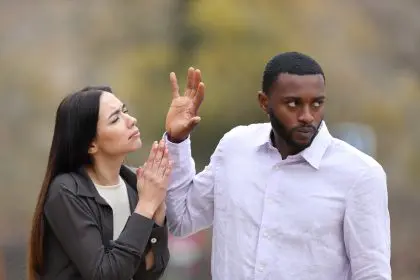When those closest to us inflict pain, the contradiction feels unbearable. The very people we trust most possess the power to devastate us completely. Yet within this vulnerability lies an opportunity to forgive, leading to profound healing and stronger connections than ever before.
Friendship betrayal ranks among life’s most complex emotional challenges. Unlike romantic relationships or family bonds, friendships exist by choice alone. This voluntary nature makes the sting of betrayal particularly acute while simultaneously offering hope for genuine reconciliation.
Modern psychology reveals that forgiveness functions as medicine for both mind and body. Studies from Stanford University demonstrate that chronic resentment elevates cortisol levels, weakens immune function and increases cardiovascular risk. The act of forgiveness literally rewires neural pathways, reducing anxiety and depression while improving overall well-being.
The common misconception equates forgiveness with amnesia or approval of harmful behavior. True forgiveness requires neither. Instead, it involves consciously releasing the grip of anger while maintaining clear boundaries about acceptable treatment. This distinction proves crucial for protecting yourself while rebuilding trust.
Before attempting any reconciliation, honor your feelings completely. Suppressing hurt or anger creates emotional toxicity that poisons other relationships. Consider these therapeutic approaches:
- Journal about the specific behaviors that caused pain
- Identify which values or boundaries were violated
- Acknowledge the grief of lost innocence about the friendship
- Recognize any patterns from previous relationships
This emotional archeology helps distinguish between current hurt and unresolved wounds from the past. Often, present pain triggers deeper injuries that require separate healing.
The perspective shift that changes everything
Understanding context rarely excuses harmful behavior, but it frequently illuminates contributing factors. Your friend’s actions might stem from their own trauma, stress, or misguided attempts to protect themselves. This insight doesn’t minimize your pain but can soften the edges of resentment.
Consider your own moments of causing unintended harm. Most people have said or done things they later regretted deeply. This shared humanity creates a bridge toward forgiveness without requiring you to become a doormat.
When ready to engage, choose your timing carefully. Avoid discussions when either party feels exhausted, stressed, or distracted. Begin with “I” statements that express your experience without attacking their character.
Instead of “You always hurt me,” try “I felt deeply hurt when…” This approach invites dialogue rather than defensiveness. Listen actively to their perspective, which may reveal misunderstandings or unintended consequences that reshape your entire view of the situation.
Forgiveness doesn’t require immediate restoration of previous intimacy levels. Trust rebuilds incrementally through consistent actions over time. Establish clear expectations about future behavior and communication patterns.
Create opportunities for positive interactions that remind you both why the friendship matters. Share meals, engage in activities you both enjoy, or simply spend time together without discussing the conflict. These experiences help rewrite your shared narrative.
Self-care during the healing process
Forgiveness is not a one-time decision but an ongoing practice. Some days will feel easier than others. Maintain your emotional well-being through:
- Regular physical exercise to release tension
- Mindfulness practices for emotional regulation
- Creative outlets for processing complex feelings
- Time in nature for perspective and peace
Professional counseling can provide valuable support when navigating particularly complex situations or when personal triggers make forgiveness especially challenging.
Sometimes healing requires temporary or permanent space. This doesn’t represent failure but rather wisdom about your own needs and boundaries. Healthy relationships require mutual respect and effort from both parties.
If your friend shows no remorse, continues harmful behavior, or dismisses your concerns, protecting yourself becomes paramount. Self-preservation is not selfish—it’s necessary for your continued ability to love and trust others.
Choosing forgiveness transforms both parties involved. The process often reveals new depths of understanding about yourself, your capacity for compassion, and the true nature of friendship. Many relationships emerge stronger after working through significant challenges together.
This experience teaches invaluable lessons about communication, boundaries, and the difference between healthy and unhealthy relationship dynamics. These insights benefit all future connections while deepening your self-awareness and emotional intelligence.
The path forward requires courage, patience, and commitment to both personal growth and relationship health. By choosing forgiveness, you honor your own peace while investing in the possibility of renewed connection with someone who matters deeply to you.

















